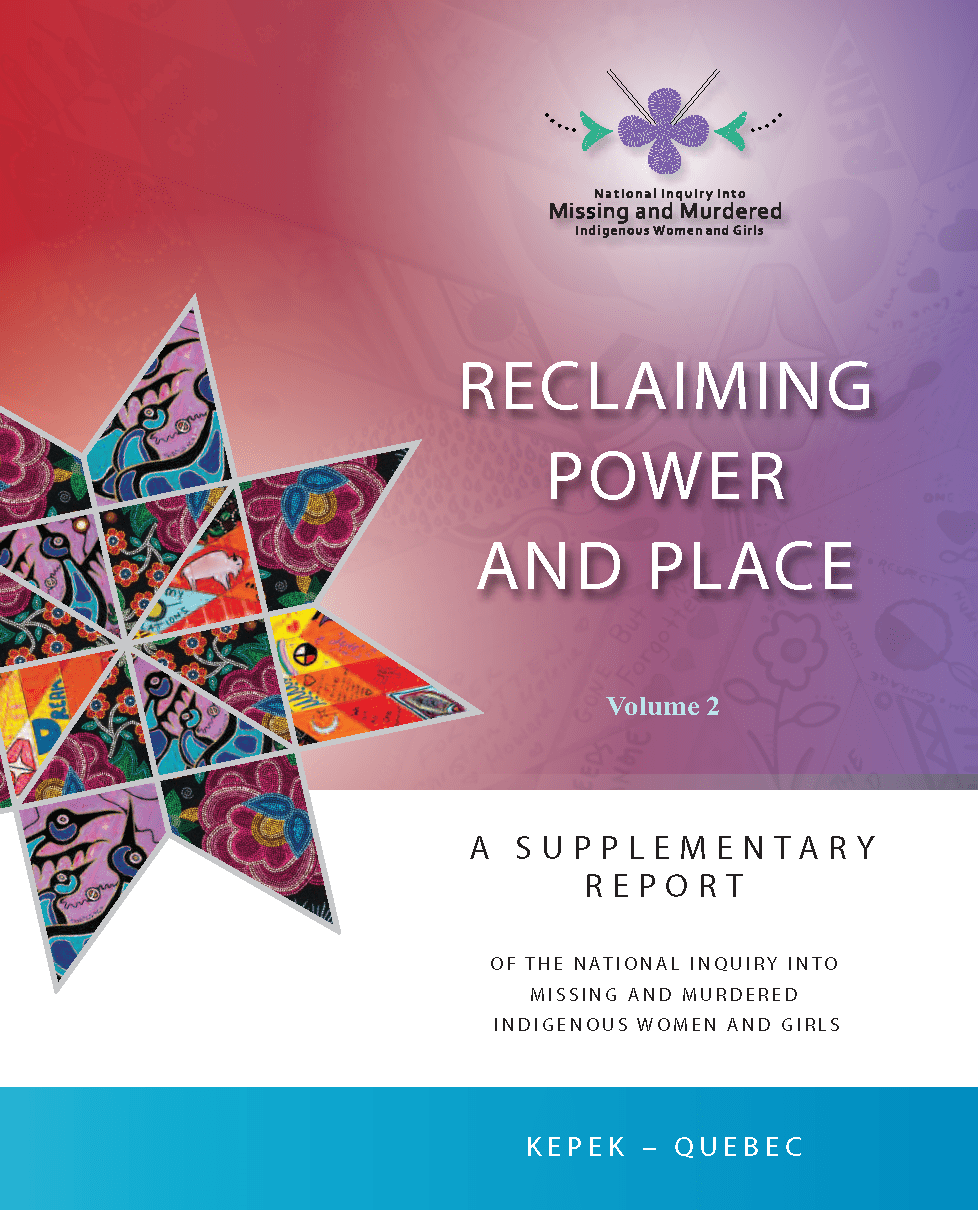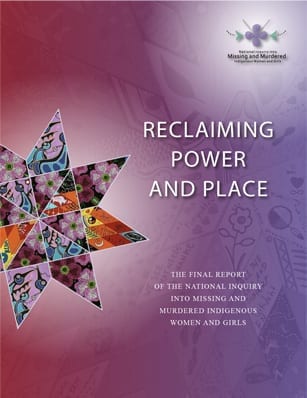Reclaiming Power and Place: The Final Report of the National Inquiry into Missing and Murdered Indigenous Women and Girls
Reclaiming Power and Place
The National Inquiry’s Final Report reveals that persistent and deliberate human and Indigenous rights violations and abuses are the root cause behind Canada’s staggering rates of violence against Indigenous women, girls and 2SLGBTQQIA people. The two volume report calls for transformative legal and social changes to resolve the crisis that has devastated Indigenous communities across the country.
The Final Report is comprised of the truths of more than 2,380 family members, survivors of violence, experts and Knowledge Keepers shared over two years of cross-country public hearings and evidence gathering. It delivers 231 individual Calls for Justice directed at governments, institutions, social service providers, industries and all Canadians.
As documented in the Final Report, testimony from family members and survivors of violence spoke about a surrounding context marked by multigenerational and intergenerational trauma and marginalization in the form of poverty, insecure housing or homelessness and barriers to education, employment, health care and cultural support. Experts and Knowledge Keepers spoke to specific colonial and patriarchal policies that displaced women from their traditional roles in communities and governance and diminished their status in society, leaving them vulnerable to violence.

Supplementary report: Quebec
The National Inquiry is simultaneously releasing a report specific to Quebec in order to give particular attention to the issue of violence against Indigenous women and girls in that province. The report outlines specific issues such as language barriers, health and social services provide by religious congregations and interaction with Indigenous and provincial police forces.
Final Report Volume 1b
Executive Summary
Executive Summary – Inuktitut
Calls for Justice
Supplementary Report – Genocide
News Release – Final Report
Master List of Report Recommendations Organized By Theme and Colour-Coded by Jurisdiction
Consolidated Literature Review of Reports relating to Violence Against Indigenous Women, Girls, and 2SLGBTQQIA People
Chapter 1: Centring Relationships to End Violence
Chapter 2: Indigenous Recognitions of Power and Place
Chapter 3: Emphasizing Accountability through Human Rights Tools
Chapter 4: Colonization as Gendered Oppression
Overwhelmingly, the families who testified before the National Inquiry were seeking answers to perceived flaws in the investigations into the loss of their loved ones.
They discussed many ways in which they felt that police services had failed in their duty to properly investigate the crimes committed against them or their loved ones, leading ultimately to a failure to obtain closure and justice within the existing system. In response, the National Inquiry established the Forensic Document Review Project (FDRP), consisting of two teams conducting a review of police and other related institutional files. One team examined files of the Province of Quebec; the second group examined police files in all other provinces and territories throughout the rest of Canada. In this summary, when we refer to the FDRP, we are referring specifically to this second group. Information and recommendations of the Quebec FDRP are located in the Supplementary Report of the National Inquiry into Missing and Murdered Indigenous Women and Girls devoted to Quebec. The purpose of the FDRP was to identify potential systemic barriers or problems and areas of weakness relating to the protection of Indigenous women, girls, and 2SLGBTQQIA people, and to make recommendations to the National Inquiry into Missing and Murdered Indigenous Women and Girls about the systemic causes of their disappearances and deaths.
During the course of the project, the Forensic Document Review Project (FDRP), which was tasked with examining files outside of Quebec, obtained and reviewed 174 files and 35 previous reports and studies on policing related to Indigenous women, girls, and 2SLGBTQQIA people, and analyzed publicly available information related to those files.
